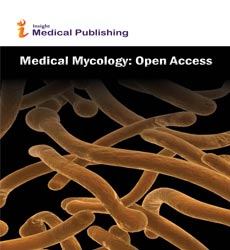Abstract
The Importance of Scoring Systems in Patients with Candidemia
Background: Candidemias are becoming a growing problem for reasons such as the increasing need for both broad spectrum antibiotic use and total parenteral nutrition and the prolongation of life spans of patients with malignancies. The fact that, despite all the technological advances that have been made, Candida spp. are seen in 50% of blood cultures shows that the problem is more serious than previously thought. The purpose of our study was to evaluate patients with candidemia and determine the importance of scoring systems.
Methods: Patients with Candida spp. growth in blood cultures between 2009-2014 were investigated retrospectively. Patients’ demographic and clinical characteristics, laboratory results, time to start of appropriate treatment, Charlson comorbidity index (CCI), SOFA and Pitt scores and prognoses were recorded from medical files and infection control committee records.
Results: One hundred fifteen patients were enrolled. Agents identified were Candida albicans in 41.7% of cases and Candida non-albicans in 58.3%. The crude mortality rate in the patients enrolled in the study was 65.2%. CCI, SOFA and Pitt scores were significantly high in the non-surviving patients. Multivariate analysis of the risk factors affecting mortality showed that a 1-unit increase in a patient’s CCI, SOFA and Pitt scores increased mortality 1.6, 1.3 and 2.0 fold, respectively, and that failure to start appropriate antifungal therapy in the first 3 days increased mortality 4.6-fold.
Conclusion: The use of CCI, SOFA and Pitt scoring systems during evaluation in patients with risk factors and prompt initiation of antifungal therapy in patients with scores above cut-off values can be life-saving.
Author(s):
Baris Ertunc, Gurdal Yilmaz and Iftihar Koksal
Abstract | Full-Text | PDF
Share this

Google scholar citation report
Citations : 164
Medical Mycology: Open Access received 164 citations as per google scholar report
Abstracted/Indexed in
- Google Scholar
- China National Knowledge Infrastructure (CNKI)
- Directory of Research Journal Indexing (DRJI)
- WorldCat
- Publons
- Geneva Foundation for Medical Education and Research
- Secret Search Engine Labs
Open Access Journals
- Aquaculture & Veterinary Science
- Chemistry & Chemical Sciences
- Clinical Sciences
- Engineering
- General Science
- Genetics & Molecular Biology
- Health Care & Nursing
- Immunology & Microbiology
- Materials Science
- Mathematics & Physics
- Medical Sciences
- Neurology & Psychiatry
- Oncology & Cancer Science
- Pharmaceutical Sciences
